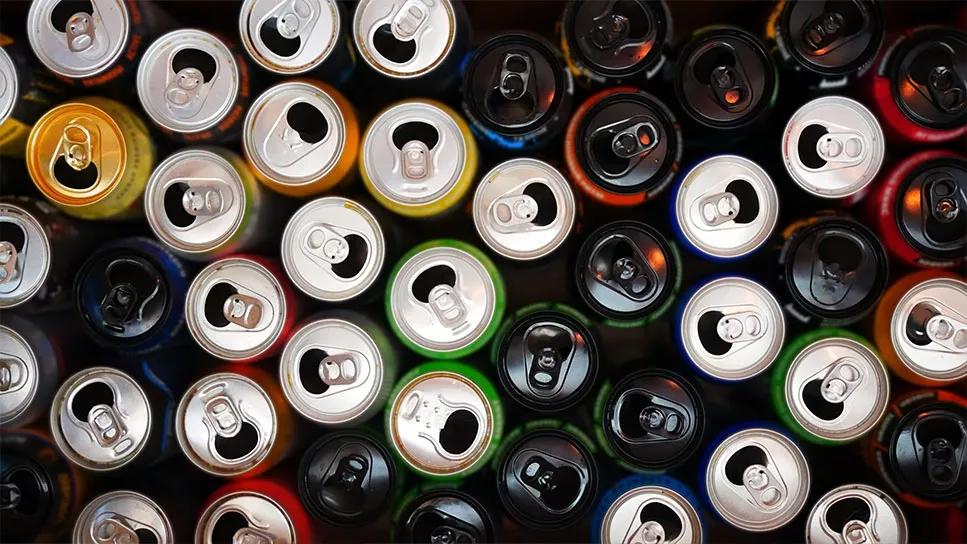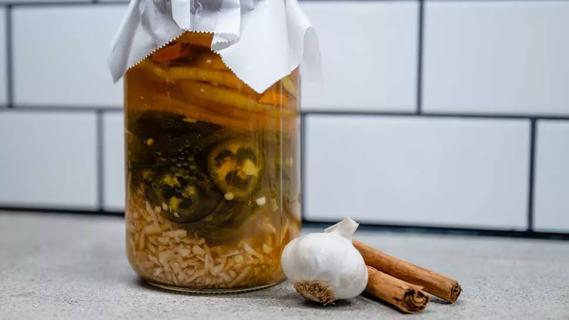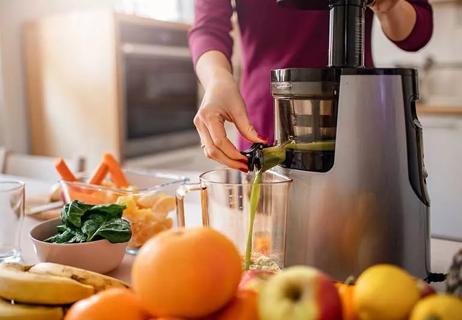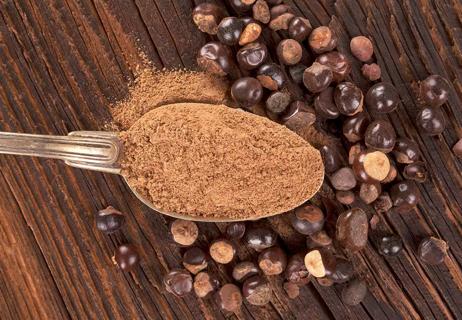Regularly drinking these sugar-fueled, stimulant-laden beverages can increase your risk of adverse health effects

Turns out there’s a downside to feeling up.
Advertisement
Cleveland Clinic is a non-profit academic medical center. Advertising on our site helps support our mission. We do not endorse non-Cleveland Clinic products or services. Policy
So-called “energy drinks” are promoted as a way to supercharge your mind and body by improving your concentration and focus and making you more alert. And these beverage brands, like Red Bull®, 5-hour ENERGY®, Monster® and Celsius®, continue to fly off the shelves. In 2023, Red Bull alone racked up sales of about 7.34 billion U.S. dollars.
But as they say, all that glitters isn’t gold. As popular as they are, the benefit claims of these mega caffeine-laden and sugar-fueled drinks may not be worth the boost. In fact, they can even pose some serious health risks if you’re not careful. So, before you knock one back, here’s what you should know, according to registered dietitian Amber Sommer, RD, LD.
A bevy of beverages on the market today can give you a quick caffeine fix. Coffee, of course, is the No. 1 pick-me-up for people in the U.S., with an estimated 154 million adults, or 75% of the population, reaching for their daily cup of joe.
For the most part, coffee is considered safe. That is if you’re not refilling your coffee cup throughout the day or ordering Venti coffees (the largest size) at Starbucks. One of those big boys has 410 milligrams (mg) of caffeine. That’s 10 mg more than a healthy adult should have in one day, according to the U.S. Food and Drug Administration (FDA).
Advertisement
But size aside, what if you want a stronger, faster jolt than a regular cup of coffee can give? Energy drink fans will argue that one can or an energy shot (a more concentrated form of energy drink) isn’t worse than having a cup of coffee. An 8-ounce can of Red Bull, for example, contains 80 mg of caffeine. And an 8-ounce cup of coffee contains 95 mg.
Sounds harmless, right? But wait. Not so fast. Caffeine is just one part of the story. Here’s what else you need to know.
There’s no denying that downing a drink full of caffeine will give you a surge of energy and heighten your focus. So, if you’re cramming for a test, burning the midnight oil at work or looking to up your sports performance, reaching for an energy drink might seem like an obvious choice. But do you really know what you’re drinking?
Besides tons of caffeine, energy drinks also contain a powerful concoction of other ingredients like taurine, an amino acid, and herbal extracts like ginseng and guarana.
“On their own, these ingredients may have some health benefits — like supporting brain and heart health, improved energy and focus and antioxidant and anti-inflammatory benefits — but when you combine them with the additional caffeine and added sugars in an energy drink, it can be a recipe for disaster,” says Sommer.
So, how bad are energy drinks for you?
“Occasional consumption of energy drinks by healthy people is not likely to be harmful,” clarifies Sommer. “But drinking them regularly can increase your risk of adverse health effects, especially if you have an existing medical condition.”
The side effects of energy drinks are many.
“The combination of caffeine and added sugars in energy drinks is associated with decreased insulin sensitivity and increased blood sugar, so they may not be a smart choice for those with diabetes,” she continues.
Downing an energy drink may also put you at risk for things like:
Surprised to see stroke in the list above? It’s true. Energy drinks can also trigger stroke. A stroke is like a heart attack but in your brain. The condition that can cause a stroke after downing an energy drink is called reversible cerebral vasoconstriction syndrome (RCVS). This sudden spasm of the blood vessels in your brain can either restrict its blood supply or cause a hemorrhage.
“It’s not uncommon for individuals to feel jittery or anxious after consuming caffeine alone,” Sommer warns. “But when you consume excessive amounts and combine this with the stimulant effect of the additional ingredients, like guarana, it can amplify the psychological and neurological effects. It may also have cardiovascular effects, like an increased heart rate and blood pressure, and may even lead to stroke.”
Advertisement
High blood pressure is the leading risk for stroke.
Besides the many physical and mental health risks, there are other important things to consider before reaching for an energy drink, notes Sommer.
“Mixing alcohol with an energy drink is a really bad idea,” she stresses. “The invigorating effects of the energy drink can mask the intoxicating effects of alcohol, so you don’t feel how drunk you’re getting.” And that makes for a very deceptive duo.
The U.S. Centers for Disease Control and Prevention (CDC) reports that people who mix alcohol and energy drinks are four times more likely to binge drink than those who don’t add an energy boost to their cocktail. They’re also more likely to report unwanted or unprotected sex, driving drunk or riding with an intoxicated driver or getting injured.
Sommer goes on to explain that becoming dehydrated is also a concern. “Caffeine has a diuretic effect which can increase risk for dehydration, making it even more important to consume adequate water and other non-caffeinated fluids to stay hydrated.”
She adds that because they taste good, an energy drink is typically consumed quickly like a soda instead of sipped casually like a cup of coffee, which enhances the drink’s effects.
Advertisement
The ingredients in energy drinks don’t always interact well with certain medications either, so mixing them is a bad idea. “If you’re on an anti-depressant or anti-anxiety medication or a blood thinner, the stimulants in an energy drink can amplify or reduce the effects of those medications,” Sommer cautions.
According to Sommer, these groups should avoid energy drinks entirely due to the potential risks:
Some energy drink brands are touting “healthier” options, which are sugar-free or low-sugar and low-calorie and may contain some vitamins and minerals. But that still doesn’t mean they’re good for you.
“There’s no way of knowing if the claim is true or not,” states Sommer. “Maybe they have less sugar or less caffeine, but they probably still contain lots of other additives and stimulants that aren’t good for you at all.”
The temporary perk you get from an energy drink is short-lived and will eventually leave you feeling less than great. So, if you’re in a slump or want to jump-start your day, instead of grabbing an energy drink for a quick fix, consider these safer alternatives:
Advertisement
Of course, there are also natural ways to keep your energy up. According to Sommer, it’s important to:
Energy drinks might be a convenient and quick pick-me-up, but their health risks aren’t worth the tradeoff. From the sky-high caffeine, sugar overload and hidden ingredients, energy drinks are anything but healthy. And choosing healthy over hasty is always the best way to go.
There are lots of other ways to put a pep in your step that not only boost your energy but are also kind and nurturing to your body.

Sign up for our Health Essentials emails for expert guidance on nutrition, fitness, sleep, skin care and more.
Learn more about our editorial process.
Advertisement

Options for sober social drinking are abundant, but be mindful about additives and triggers

Pickle juice has a reputation as a probiotic powerhouse, workout recovery aid, hangover cure and more

If you’re looking to boost your gut health, it’s better to get fiber from whole foods

While it isn’t bad for you, celery juice isn’t the detox phenom it’s claimed to be

This spicy concoction can do more harm than good, upsetting your stomach and causing painful acid reflux

Juicing removes beneficial fiber from fruits and veggies and raises your blood sugar

Sports drinks can give your body a boost, but it’s important not to overuse them

Guarana seeds may have benefits, but the potential is lost in processing

Even small moments of time outdoors can help reduce stress, boost mood and restore a sense of calm

A correct prescription helps your eyes see clearly — but as natural changes occur, you may need stronger or different eyeglasses

Both are medical emergencies, but they are very distinct events with different causes